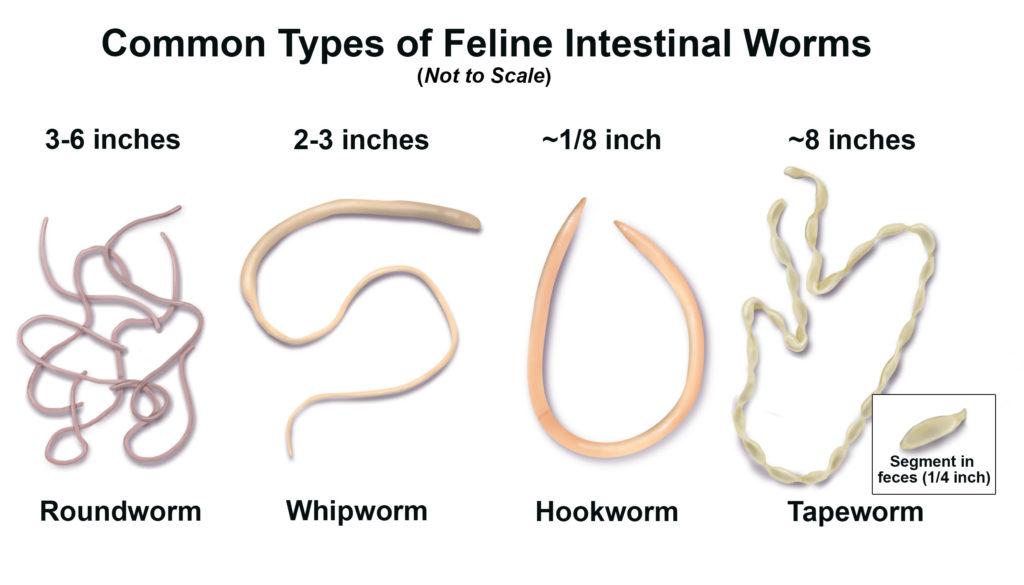You have a new furry addition to your family, but along with the joy of having a puppy comes the responsibility of ensuring their health and well-being. One common issue that many puppy owners face is dealing with worms and parasites. It’s important to address these concerns promptly to keep your puppy healthy and happy. In this blog post, we will discuss the importance of 24/7 vet consultation for puppy worms and parasites, providing you with valuable information and guidance on how to best care for your furry friend.
Key Takeaways:
- Regular check-ups: It’s important to have regular consultations with a vet to monitor your puppy’s health and tackle worms and parasites early on.
- 24/7 availability: Access to a vet consultation service around the clock can provide immediate assistance in case of emergency worm or parasite infestations in your puppy.
- Preventive measures: Vets can provide guidance on preventive measures such as deworming schedules and parasite control to keep your puppy healthy and happy.
Understanding Puppy Worms and Parasites
While owning a puppy can be a rewarding experience, it also comes with the responsibility of ensuring their health and well-being. One common health issue that puppies face is the presence of worms and parasites in their system. These internal parasites can wreak havoc on a puppy’s health if left untreated, making it crucial for pet owners to be informed about the types, transmission, and prevention of puppy worms and parasites.
Common Types of Worms and Parasites in Puppies

| Types of Worms and Parasites | Symptoms |
|---|---|
| Roundworms | Diarrhea, vomiting, potbellied appearance |
| Hookworms | Weakness, pale gums, bloody stool |
| Tapeworms | Rice-like segments in feces, scooting on the ground |
| Giardia | Diarrhea, greasy stools, dehydration |
Assume that any of these symptoms are present in your puppy, a visit to the veterinarian for proper diagnosis and treatment is imperative.
Life Cycle and Transmission of Worms and Parasites
With proper understanding of how worms and parasites are transmitted, pet owners can take preventive measures to protect their puppies. Worms and parasites typically enter a puppy’s system through ingestion of contaminated feces, soil, or infected prey. Additionally, some parasites like fleas and ticks can also serve as vectors for transmission.
What causes puppy worms?

Puppy worms are a common health issue that can affect young dogs. Understanding the causes of puppy worms is essential for pet parents to effectively prevent and treat this condition.
Puppy Worms Causes
- Parasitic Infections: The most common cause of puppy worms is parasitic infections. These parasites, such as roundworms, tapeworms, hookworms, and whipworms, can be easily transmitted to puppies through contaminated soil, feces, or infected animals.
- Maternal Transmission: Puppies can also acquire worms from their mother during pregnancy or through nursing. In some cases, the worms may lie dormant in the mother’s body and become active once the puppies are born.
- Environmental Factors: Poor sanitation and hygiene practices can contribute to the spread of puppy worms. Contaminated water sources, unclean living conditions, and exposure to infected animals can increase the risk of worms in puppies.
- Lack of Preventative Measures: Failure to implement regular deworming protocols and hygiene practices can leave puppies vulnerable to worm infections. Preventative measures, such as proper sanitation, regular veterinary check-ups, and deworming medications, are crucial in preventing puppy worms.
The Most Important Causes
- Lack of Preventative Care: Neglecting regular deworming and veterinary care can significantly increase the risk of puppy worms.
- Poor Hygiene Practices: Inadequate sanitation and cleanliness in the puppy’s environment can create an ideal breeding ground for parasites.
- Maternal Infections: Puppies born to mothers with existing worm infections are at a higher risk of developing worms themselves.
- Environmental Exposure: Puppies that spend time in contaminated environments or come into contact with infected animals are more likely to contract worms.
By understanding the causes of puppy worms and taking proactive steps to prevent them, pet parents can help ensure the health and well-being of their furry companions. Stay tuned for the next section, where we will discuss common symptoms and treatment options for puppy worms.
Are puppy worms harmful?

Puppy worms can be a real pain, but for most pups they aren’t life-threatening.
It’s kind of like a tummy bug for us. Here’s the thing:
- Puppies are more likely to get worms than grown dogs because they can catch them from their mom before they’re even born.
- These little worms steal nutrients from your pup, making it hard for them to grow big and strong.
The biggest worry is if the worm infestation is really bad. This can lead to things like:
- Weight loss
- Pot belly
- Diarrhea
- Vomiting
If you spot any of these signs, or think your pup might have worms, take them to the vet. They can give your furry friend some medicine to get rid of those creepy crawlies.
Diagnosis and Consultation Process
Symptoms of Worms and Parasites in Puppies

Parasites are a common concern for puppy owners, as these tiny organisms can wreak havoc on a young dog’s health. It’s crucial to be vigilant for signs of worms and parasites in puppies. Common symptoms include diarrhea, vomiting, weight loss, bloated abdomen, lethargy, and visible worms in feces or around the anus. If you notice any of these symptoms in your puppy, it’s important to consult a vet immediately for proper diagnosis and treatment.
Early detection of worms and parasites is key to preventing serious health issues in puppies. Regular veterinary check-ups and fecal examinations are imperative to ensure your puppy’s well-being. Remember that some parasites can be transmitted to humans, making prompt consultation and treatment even more critical for the health of your entire family.
Role of 24/7 Vet Consultation in Diagnosis
Puppies rely on their owners to provide them with the best possible care, especially when it comes to health concerns like worms and parasites. With 24/7 vet consultation services, pet owners have the convenience of seeking immediate advice and guidance from veterinary professionals at any time of the day or night. This immediate access to expert help can be a game-changer in diagnosing and treating parasites in puppies.
Having round-the-clock access to veterinary consultation can alleviate the stress and uncertainty that comes with a sick puppy. Whether you notice symptoms during off-hours or have urgent questions about parasite prevention, a 24/7 vet consultation service ensures that help is just a phone call away. This quick and reliable access to veterinary expertise can make a significant difference in the health outcomes of your furry friend.
This service provides pet owners with peace of mind, knowing that they can get guidance from a qualified veterinarian whenever needed. Being able to consult with a vet 24/7 empowers puppy owners to take proactive steps in managing their pet’s health, especially when dealing with potential risks like worms and parasites. With timely advice and proper diagnosis, puppies can receive the necessary treatment promptly, leading to a faster recovery and improved overall well-being.
Treatment and Prevention Strategies
Medications and Treatment Protocols

Treatment for puppy worms and parasites typically involves the administration of deworming medications prescribed by a veterinarian. These medications are specifically designed to target and eliminate various types of intestinal parasites that may be infecting your puppy. The dosage and duration of treatment will vary depending on the specific parasite involved and the severity of the infestation.
It is crucial to follow the veterinarian’s instructions precisely when administering medications to ensure the effectiveness of the treatment. In some cases, multiple rounds of medication may be necessary to completely rid your puppy of worms and parasites. Regular follow-up appointments with the vet are imperative to monitor your puppy’s progress and adjust the treatment plan if needed.
Preventative Measures and Regular Health Checks

Health checks and preventative measures play a vital role in keeping your puppy safe from worms and parasites. Regular check-ups with a veterinarian can help detect any potential issues early on and prevent them from escalating. Your vet may recommend fecal exams to screen for parasites and determine the best course of action.
Additionally, maintaining good hygiene practices, such as keeping your puppy’s living area clean and washing your hands after handling them, can help prevent the spread of parasites. Avoiding contact with infected animals and ensuring that your puppy is on a regular deworming schedule can significantly reduce the risk of parasitic infestations.
Preventative measures also include feeding your puppy a healthy diet, providing clean drinking water, and ensuring they receive regular exercise to support their overall health and immune system. By taking proactive steps to prevent worms and parasites, you can help keep your puppy happy and healthy for years to come.
Supporting Your Puppy’s Health Post-Treatment
Diet and Nutrition for Recovering Puppies
Supporting your puppy’s health post-treatment for worms and parasites is crucial for a smooth recovery. Ensuring that your puppy is receiving the proper diet and nutrition is key to helping them regain their strength and immunity. A balanced diet rich in high-quality proteins, important vitamins, and minerals will aid in their recovery process.
It is important to consult with your veterinarian to develop a nutrition plan tailored to your puppy’s specific needs. Your vet may recommend gentle, easily digestible food during the recovery period to prevent any stress on your puppy’s digestive system. Providing fresh water at all times is also important to keep your puppy hydrated and to flush out any remaining toxins in their system.
Importance of Follow-Up Consultations and Care
Puppies recovering from worms and parasites require follow-up consultations and care to ensure that the treatment was successful and that there are no signs of a recurrence. Regular check-ups with your veterinarian will help monitor your puppy’s progress and address any lingering issues. It is crucial to follow your vet’s recommendations for follow-up treatments, such as deworming medications, to prevent any future infestations.
Additionally, your vet may recommend specific preventive measures to protect your puppy from contracting worms and parasites in the future. These may include regular fecal exams, monthly preventatives, and maintaining a clean living environment for your puppy. By staying proactive and attentive to your puppy’s health, you can help them stay happy and healthy post-treatment.
Importance of Follow-Up Consultations and Care
Post-treatment care is important for ensuring that your puppy fully recovers from worms and parasites. It is crucial to follow your vet’s instructions for any medication or dietary changes to help your puppy regain their strength and immunity. Additionally, keeping a close eye on your puppy’s behavior and overall well-being can help catch any potential issues early on.
Conclusion

With these considerations in mind, seeking 24/7 vet consultation for puppy worms and parasites is crucial for ensuring the health and well-being of your furry friend. Timely diagnosis and treatment can make a significant difference in the recovery process and prevent any potential complications. By consulting with a vet round the clock, you can address any concerns or issues promptly, leading to a quicker resolution and a happier, healthier puppy. Don’t hesitate to reach out to a professional for guidance and support whenever needed.
FAQ
Q: What is a 24/7 vet consultation for puppy worms and parasites?
A: A 24/7 vet consultation for puppy worms and parasites refers to round-the-clock access to veterinary professionals who can provide guidance, diagnosis, and treatment options for your puppy if they are experiencing issues related to worms and parasites. This service allows you to seek help at any time of the day or night, ensuring your puppy receives timely care.
Q: What are the common signs that my puppy may have worms or parasites?
A: Common signs that your puppy may have worms or parasites include diarrhea, vomiting, weight loss, a potbellied appearance, dull coat, scooting on the ground, visible worms in the feces, and lethargy. If you notice any of these symptoms in your puppy, it is crucial to consult with a vet promptly for proper diagnosis and treatment.
Q: How can a 24/7 vet consultation help in addressing puppy worms and parasites?
A: A 24/7 vet consultation can help in addressing puppy worms and parasites by allowing you to connect with a veterinary professional whenever you notice any concerning symptoms in your puppy. The vet can evaluate your puppy’s condition, recommend diagnostic tests if needed, prescribe appropriate medications, and provide guidance on prevention strategies to ensure your puppy’s health and well-being.










